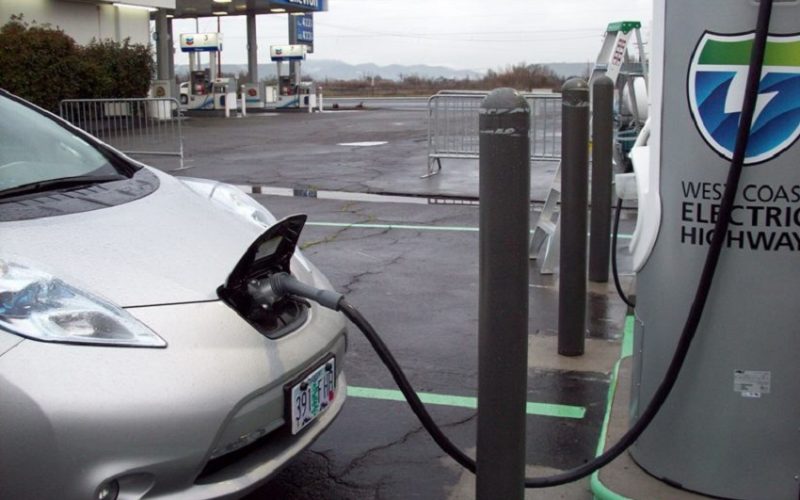Salem, OR – Oregon has joined a multistate lawsuit against federal transportation agencies, challenging the decision to withhold funding designated for the expansion of electric vehicle (EV) charging infrastructure. Filed on Wednesday in U.S. District Court in Seattle, the lawsuit is led by the attorneys general of Washington, California, and Colorado, alongside 13 other Democratic attorneys general. The defendants named in the suit include the U.S. Department of Transportation (DOT), its secretary, Sean Duffy, and the Federal Highway Administration (FHWA), represented by acting administrator, Gloria Shepherd.
The crux of the lawsuit lies in the argument that only Congress, not the president or federal agency leaders, has the authority to rescind the remaining grant funding for the National Electric Vehicle Infrastructure (NEVI) program. This program, initially funded through the Bipartisan Infrastructure Investment and Jobs Act of 2022, was designed to help states build EV charging networks along highways and interstates across the country.
In 2021, Oregon was awarded $52 million to develop its EV charging infrastructure over a five-year period. These funds were intended to support the installation of numerous fast chargers and Level 2 chargers across the state, specifically along 11 designated “alternative fuel corridors” spanning key highways, including U.S. Highway 97 and Interstate 205. However, an executive order signed by President Donald Trump in January 2021 directed federal agencies to halt the disbursement of funds approved under the infrastructure act, effectively blocking the remainder of Oregon’s planned funding.
According to the state’s transportation department, the uncertainty surrounding the funding cuts poses a significant threat to its ambitious plans for EV infrastructure. Oregon’s Department of Transportation (ODOT) has already committed $26 million toward engineering, construction, and installation efforts, but it is now facing a shortfall of $15 million for the current year. Without this funding, ODOT warns it will be unable to complete key projects, including the development of eight out of the eleven planned charging corridors.
In a statement, Oregon Attorney General Dan Rayfield emphasized the critical importance of the funding, noting that the state’s own analysis shows a dire need for more charging stations to keep up with the increasing number of electric vehicles on the road. “Oregon’s own analysis shows we need five times more public EV chargers along our highways by 2030 just to keep up with the number of electric cars hitting the roads,” Rayfield said. “If federal funding is delayed or cut off, it puts us at serious risk of falling behind on our climate goals and leaves drivers without the charging infrastructure they need.”
The need for expanded charging infrastructure is particularly urgent in Oregon, where estimates suggest the state will need between 8,000 and 13,000 DC fast chargers, along with 12,000 to 50,000 Level 2 chargers by 2030, to meet demand from a rapidly growing EV market. Currently, the state has approximately 3,800 public EV chargers across more than 1,400 stations, according to the federal Joint Office of Energy and Transportation.
Oregon’s lawsuit highlights the broader implications of the federal government’s actions, arguing that the state’s ability to meet its climate goals and provide adequate infrastructure for its residents depends on the restoration of these crucial funds. The lawsuit calls for the funds to be reinstated and for the FHWA to honor previously approved state plans, thus allowing Oregon to complete its charging network expansion as intended.
As the legal battle unfolds, the future of Oregon’s EV infrastructure development hangs in the balance. The outcome of this case could have significant implications not only for Oregon but also for other states seeking to advance their own EV charging initiatives in the face of federal uncertainty.











